 Last month, Queerty shared our summer beach (and pool) book suggestions for 2013. On that list was Alysia Abbott‘s new memoir, Fairyland: A Memoir of My Father, which has received universal acclaim since its release last month.
Last month, Queerty shared our summer beach (and pool) book suggestions for 2013. On that list was Alysia Abbott‘s new memoir, Fairyland: A Memoir of My Father, which has received universal acclaim since its release last month.
Abbott’s mother died when she was just a toddler. In the late 1970’s, her father, Steve, an openly gay man, brought her to San Francisco, where the two made their home in the city’s Haight district. In the memoir, Abbott writes about growing up in a city bustling with homosexual men in search of liberation, playing “dress up” with her father and his boyfriends, and how the AIDS epidemic shaped her.
We had a chance to interview Abbott about the book, as well as how she thinks her father would have reacted to last month’s Supreme Court ruling on DOMA. She spoke to us from her home in New York, having just finished up a book tour.
When you were a child, you would often see your father in drag, and would sometimes even play “dress up” together.
How about we take this to the next level?
Our newsletter is like a refreshing cocktail (or mocktail) of LGBTQ+ entertainment and pop culture, served up with a side of eye-candy.
My dad started dressing in drag before I was born and stopped when I was about six or seven (at which point he adopted the butch Clone look). When I was a little girl, I saw all of this as fun. Dad liked to dress up. I liked to dress up. Our roommates and boyfriends liked to dress up. I then saw my father as a great playmate and enjoyed rifling through the costumes and antique jewelry he’d pick up at second hand shops, while incense swirled in the air. Looking back I don’t think this harmed me in any way. Dad’s personal style bothered me more when I entered school and wanted him to look like the other dads, so I wouldn’t be picked on.

At what age did you realize that your childhood experience (being raised by a single gay father) was outside the norm?
My earliest memories of my father are of him in the company of boyfriends, so I never “learned” he was gay. Rather, I learned (through school and TV) that men liking men, and women liking women, was outside the norm, somehow embarrassing, and worthy of secret-keeping. Dad used to coach me to hide his boyfriends when I visited my grandparents as a little girl. I think he was scared that if they knew how he was living, they’d try to take me. He’d have had no chance in a custody battle in those years.
Growing up, you lived with a variety of colorful characters (drag queens, drug addicts, and even a few of your father’s boyfriends/lovers).
We knew some fantastic colorful people, that were just so creative and fascinating when I was little. As I got older I became more weary of Dad’s friends that didn’t fit my adolescent version of cool. I had a special disdain for the drug addicts then, because I didn’t like my dad to be using and tricking around. On some level this might have been mixed in with my fear of AIDS and the possibility he might get infected. It’s hard to say for sure.

You came of age in San Francisco during both the height of the AIDS epidemic. How would you describe that time in history?
The 1980s AIDS epidemic was a frightening period for everyone living in the country at that time, but especially for those in our community. There was so little known about the disease in the early years. The Reagan Administration lagged far behind Western nations in educating its citizenry about AIDS. Panic and stigma was widespread. There was a lot of whispering among my dad’s friends. Who has it, who might have it. I think I was scared witless by the news coverage and this sense that I could lose my dad in this horrible way. But, strangely, I don’t recall us ever talking about it. He didn’t even report much on his journals about who among his friends were sick. The loss of that era is unfathomable, as is the knowledge that so many lives could have been saved if homophobia hadn’t been so rampant in our federal government. It’s a shameful period in American history. Though, as is evident in documentaries like We Were Here and How to Survive A Plague, there was a lot of heroism, too.
When did you first suspect your father might be HIV+?
I don’t know when I suspected. Honestly, my memory of thinking about my father and AIDS before 1989 is so very faint. But in reading my dad’s journals, seeing how tired and run down he was, I can’t help but think these were early symptoms that he’d been infected much much earlier. And in fact, his journals revealed that he’d tested positive in 1986, while I was still living with him even though he doesn’t write me about his t-cell count in the Spring of 1989. This was shocking for me to learn. I have to think he was trying to protect me, not wanting to worry me before I was enrolled in college across the country. There’s so many questions, of course, that I’ll never be able to get answered with certainty.
 How do you think your mother would have responded to the way your father raised you? Had she not died at such a young age, do you think they would have stayed together?
How do you think your mother would have responded to the way your father raised you? Had she not died at such a young age, do you think they would have stayed together?
I don’t think my mother would have objected to how my father raised me. He raised me with a lot of intelligence and respect and playfulness that she would have approved of. She was also pretty out there when they were together. She was aware of, and participated in, a lot of the sexual anarchy of the day. Like him, she took other lovers, possibly women. I do think she’d have kept a tidier house and would have better met my needs for routine and order. I used to fantasize that if she hadn’t died my parents would still be together but even my dad suggested otherwise. Mostly likely, they’d have divorced.
What do you think your father would think about the recent Supreme Court rulings gay marriage?
I think he would be celebrating. In his lifetime, he never imagined that gay men and women would be given the right to marry. But I think he would also say that the struggle for gay rights reaches far beyond the right to be accepted by traditionally heterosexual institutions like marriage and military. He’d probably urge the GLBT community to continue broadcasting (through art and literature) it’s own fiercely unique perspective on love and life, hoping eventually that these will inspire more tolerance and change within mainstream society. He might also say that we should continue to fight for the most vulnerable members of GLBT community — people with AIDS, GLBT youth, and the homeless.
If you could say anything to your father today, what would it be?
Wish you were here.

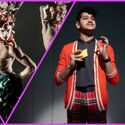
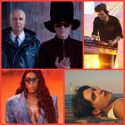
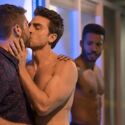
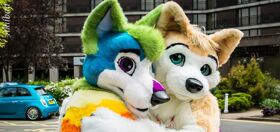

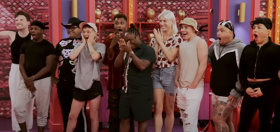

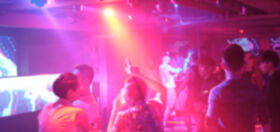
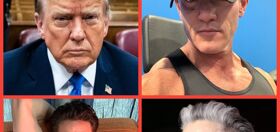
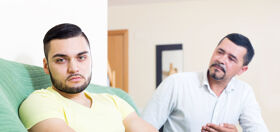
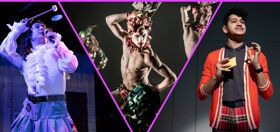

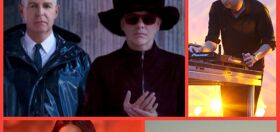






Mr. E. Jones
To be honest, from reading this interview, her childhood seems like it was somewhat miserable. Sorry she lost her father, but if her mother had lived, she probably would have been better off with her, than with her father.
hyhybt
@Mr. E. Jones: It’s hard to say. She seems to have turned out OK, and taking people as they are is something many raised in what would generally be considered better environments don’t learn.
Scribe38
@Mr. E. Jones: I don’t think so. I heard a radio interview on NPR and she seemed very well adjusted and honest. There are times in her life that she preferred the lifestyle of her grandparents but they had more money, more stable situation. Overall though she wanted to be with her dad. Her speaking of her dad having AIDS and her resentment at having to move back on to take care of him is honest and heartbreaking.